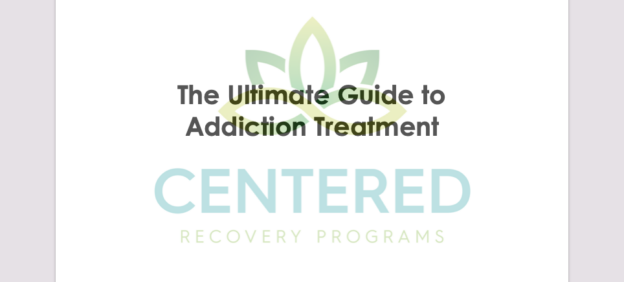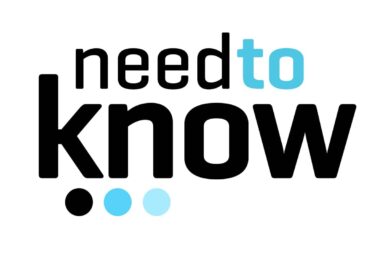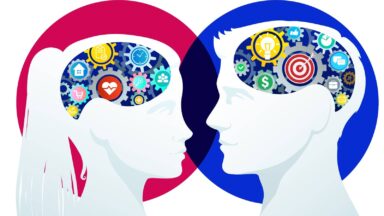Answers and Guide to Addiction Treatment
If you or a loved one needs addiction or mental health treatment, you probably have a million questions. That is why we made this guide to addiction treatment. Even if you have previously sought substance abuse rehabilitation treatment in the past, there can be a million questions that you need answered before you can make what could possibly be a life-saving decision! Simply consulting Google will not help you narrow down your choices or know exactly what questions to ask to find the right fit for you.
There are dozens, if not hundreds of addiction treatment facilities in Georgia. They all have professional websites and pretty pictures. It can be tough to narrow it down to the one who might save your life. So what do you need to know if you are searching for drug rehabs near me in Atlanta? Centered has created the Guide to Addiction Treatment to answer some of the most commonly asked questions about treatment in Georgia.
Must Know Terms When Seeking Drug and Alcohol Addiction Treatment Centers in Atlanta, Georgia
Centered Recovery drug and alcohol addiction treatment centers in Atlanta knows the type of questions people ask when seeking drug treatment in Atlanta! This guide to addiction treatment addresses many of those questions. We get phone calls and email inquiries 24 hours a day, many with the same questions, but all with the same drive behind them: I need help and I don’t know where to turn. So we’ve compiled some of the first line of information people should have and the questions you should be asking the addiction treatment facilities you speak with to help you make one of the biggest decisions of your life.
First, you have to understand a few key terms that are used nationwide in the treatment industry. You need to understand what clinicians and directors recommend for your treatment plan and exactly what that means. We have compiled a list of the most commonly used terms, but please feel free to clarify with the addiction professionals you speak with to ensure they are using the terms in the same way.
Drug Rehabs in Atlanta Provide Different Levels of Care
Typically, a client will be recommended for the highest level of addiction treatment centers care that they meet the criteria to receive, and moved down as they become more and more stable. If they relapse, they may be moved back up a level of care (or more), and held there until they have proven stability and/or they have worked through the issues that led to the relapse.
- Drug and Alcohol Detox Centers: Detoxification can be provided along with residential care or as a standalone prior to residential treatment. You may or may not require a medical detox, depending on the substances being used, the quantity, and the length of time used. Most detox treatment will include some counseling or groups, but most do not require attendance to these, as the primary focus at this time is medical stabilization and returning to a level of physical health where you are not dependent on substances and you are able to be comfortable.
- Residential: This is a big one with our guide to addiction treatment. Depending on the substance used, the duration of time using it, the number of attempts at sobriety in the past, a person may be recommended to attend residential level of care. These facilities will house, feed, monitor, and provide therapeutic treatments to clients for the duration of their time at this level of care. Residential level of care should provide 24 hour access to medical care via doctors and/or nurses, as well as 24 hour access to clinical care for mental health issues that may arise.
- “Florida model”: this is the unofficial term for residential substance abuse rehabilitation facilities who house clients offsite. This is typically in a house or apartments, then bus them to treatment for the day in a facility. This is primarily done because of the high costs of creating a residential-specific facility, but also allows programs to provide more treatment to clients with full 24-hour supervision. This type of housing is also used for clients whose insurance will no longer cover residential services with full time 24 hour access to medical and clinical care, but still are not ready to go home or just attend outpatient programming. If you are looking for full time residential care (and paying for it), you may need to ask specifically where you will be staying during your treatment.
- PHP, partial hospitalization program: while it has the word “hospital” in it, this typically just means full time day treatment, where you are still able to return to home/sober living environment at the end of the day. In some facilities, PHP is a part of “residential” treatment, although it is not strictly considered residential. These facilities are simply billing PHP services after insurance will no longer cover full residential care. Often, the residential PHP service looks and feels the same as full residential care (same number of hours of treatment/groups/program, meals included, supervision of client). However, you can attend PHP level of care at an outpatient facility as well. In Georgia, PHP level of care provides 6 hours a day, 5 days per week, which includes random urinalysis/drug screening, and at least one individual therapy session per week with a licensed clinician. The program time can be broken up to include support groups, family sessions, AA/NA groups, and experiential therapies like art or music. You typically begin at the highest level of care and work your way down
- IOP drug rehabs Atlanta, or intensive outpatient program: We are proud to provide this guide to addiction treatment and highlighting our popular IOP drug rehab in Atlanta. This level of care includes 3 to 5 group programming sessions of three hours each, for a total of 9-15 hours weekly. It also should always include a full hour of individual counseling, which should include the creation of an individualized treatment plan with specific goals you wish to work on. It should also include family sessions with loved ones, as allowed, because addiction does not happen in a bubble! This level of care should also include weekly random drug screenings via cheek swab, urinalysis, and/or breathalyzer use.
- OP, outpatient program: This is the lowest level of care for addiction/mental health treatment. This should include 90 minutes to 6 hours of group programming weekly, and can be gradually stepped down to the lowest amount to allow clients to fully acclimate in their every day lives while still having the support of their treatment team. This level of care should also include 1 or 2 one hour individual sessions with a clinician, where they can continue to work on their treatment goals and continue to create plans that allow them to return to life beyond treatment. Finally, sobriety monitoring should continue to occur with random drug screenings one or two times per month.
- Support Groups: These are free and can be found in just about every town across the U.S. They may utilize the 12 steps/AA/NA, SMART Recovery, Recovery Dharma, Celebrate Recovery, or Mindfulness-Based Support such as the ones provided by our drug rehabs Atlanta centers. While some treatment programs may utilize peer support groups as a complement to their program, keep in mind that these are available for free and should not make up the bulk of your treatment at any facility that charges fees either to you or your insurance. You can and should ask about the program you will receive, find out if the groups are led by licensed/qualified individuals or “peers”. There are some facilities who will utilize recent graduates or even clients still currently in treatment for addiction to lead groups as a way to cut costs for them! All groups marketed as therapeutic should minimally be supervised by a qualified professional. Would you go to a dentist who allowed a recent cavity patient to work on your teeth? Of course not! The recent patient can only tell you about their experience as a patient, even if they have had many cavities–not help guide you in the direction you need to make a meaningful change in your life. The same applies here.
- Intervention/Interventionist: If you’ve ever seen the tv show “Intervention”, you probably have some idea of what this is. You may or may not need an intervention for your loved one, and only you and those closest to the person can make that call. The services of an interventionist can be expensive depending on the time and need. Fees can range anywhere from $2,000 to $10,000 and this typically isn’t something that is reimbursable by insurance. However, for a person who is very resistant to treatment or any kind of help and is endangering themselves or others with their actions. This can be money well spent. Interventionists will typically meet with loved ones and get a short history and biography of the person. This includes your goals for treatment/care, and should be incredibly well-trained to know how to approach people in addiction and mental health crises. They should also be experienced in how to de-escalate tense and emotional situations. They should be caring and knowledgeable, but as firm as possible. They may also make recommendations to the family about how to hold firm boundaries with the person. This is in an effort to keep the person (as well as others) safe. Interventionists should also be very knowledgeable about treatment options across a broad spectrum of rates, styles, treatment modalities, and environments.
Understanding Drug and Alcohol Addiction Treatment
Our drug rehabs Atlanta Psychology Today team have worked hard to educate on substance abuse treatment and care. Now that you have an understanding of some the key treatment terms used, you can use it to speak the same language as interventionists, treatment placement teams, therapists, and case managers who might be involved in helping your loved one get addiction help in Georgia. While it may seem like a lot to learn at first, it is incredibly important to understand what treatment terms mean and what you can expect from a treatment program. Choosing an addiction treatment program can be one of the most important decision of your life! It is crucial that you are able to form your plans with the knowledge of what is available to you. In part two of our Addiction Treatment in Georgia Guide, we will discuss the financial information you will need to know!
If you have questions about addiction treatment in Alpharetta or would like to know more about Centered Recovery’s mindfulness based addiction treatment program, please gives us a call at 800-556-2966 to speak to one of our knowledgeable team members!








